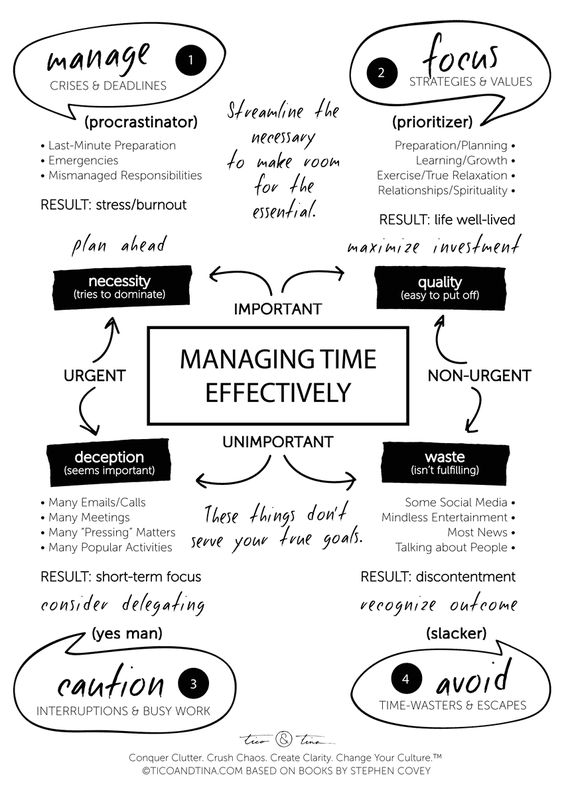Effective time management is crucial for everyone, regardless of their profession. It sounds easy, but good time management skills are difficult to master. In fact, managing time wisely can be a daunting task, especially if you are concurrently managing multiple tasks. Nevertheless, those who perfect this skill possess the potential to outperform and unlock their productivity. Here are 17 essential time management skills.
Goal Setting
Being able to set goals that are SMART (which means Specific, Measurable, Achievable, Relevant, and Time-bound) is crucial to make the most of your time. Clear goals motivate people to work harder and focus better.
Prioritizing Tasks
It is important to have the ability to identify and prioritize tasks based on their urgency and importance. The essential questions to ask are: What needs to be done first? What can be done later? This simple practice helps to order your duties, optimize the use of your time and reduce stress levels.
Scheduling
It is important to know how to schedule your day properly by using tools such as calendars and planners. Scheduling helps you identify the time available for specific tasks and minimize the risk of forgetting crucial meetings or deadlines.
Time Logging
Keeping track of your time is a critical part of good time management. It enables individuals to know how much time they spend on specific tasks, identify time-wasting activities and prioritize them accordingly.
Time Batching
Grouping similar tasks and completing them at once saves time. Activities that are repeated regularly such as emails or data entry can be batched so that they’re completed together during a specific time frame.
Delegation
Delegating tasks to others is a valuable skill if done correctly. It ensures that tasks are completed efficiently and promotes team strength.
Taking Breaks
It’s a common misconception that taking breaks reduces productivity. Taking breaks ensures that your mind is recharged and ready to tackle upcoming tasks effectively.
Handling Interruptions
Interruptions can interfere with your workflow and lower productivity levels. Knowing how to handle them is essential. Whether it is delegating tasks, politely telling the interrupter that you cannot address their request, or pausing the current task to attend to the issue, it allows you to achieve maximum productivity.
Focus Skills
Distractions are common in today’s world, but focus skills can prevent interruptions and improve productivity. This includes learning how to maintain focus for longer periods through the Pomodoro Technique or turning off notifications and other distractors.
Multitasking
Multitasking seems like a productive skill at first glance. However, it can reduce productivity levels, as it can lead to burnout when handling too many tasks at once.
Stress Management
Time management skills are vital to reduce stress. Identifying high-stress tasks and determining when to tackle them can help prevent burnout and ensure you complete essential tasks effectively.
Time Estimation
Accurately estimating the time required for specific tasks helps you plan your day with precision. Being able to estimate the time required and complete the job within that estimate promotes your productivity.
Planning Ahead
Planning ahead is an essential skill that helps you plan for upcoming events, deadlines, and meetings. This practice minimizes stress levels and enables you to create more reasonable schedules.
Analytical Skills
Analytical skills allow you to identify potential roadblocks that may occur, and work towards making adjustments. It helps individuals determine why current time management strategies are failing and what areas they need to improve upon.
Self-Awareness
Self-awareness means understanding your working conditions and learning to work productively based on your preferences. It helps because everyone is different, and what works for one person may not work for another.
Continuous Learning
Learning is a necessary ingredient for improving productivity. Continuous learning helps individuals develop and improve their time management skills, and it also makes them more adaptable and open to change.
You might find these FREE courses useful
- Strategic Career Self-Management
- Work Smarter, Not Harder: Time Management for Personal & Professional Productivity
- Engineering Project Management: Scope, Time and Cost Management
- Free Time Management Tutorial – Effective Time Management for Employees
Automation
Certain repetitive tasks can be automated, which can save time and increase productivity. Automated invoicing, email marketing, or data entry are some examples.
In conclusion, time management skills are essential for success. Understanding and mastering these skills will drastically increase your productivity and help you manage your time efficiently. Although each of these skills is important individually, the combination of these skills can maximize productivity to reach greater heights.


